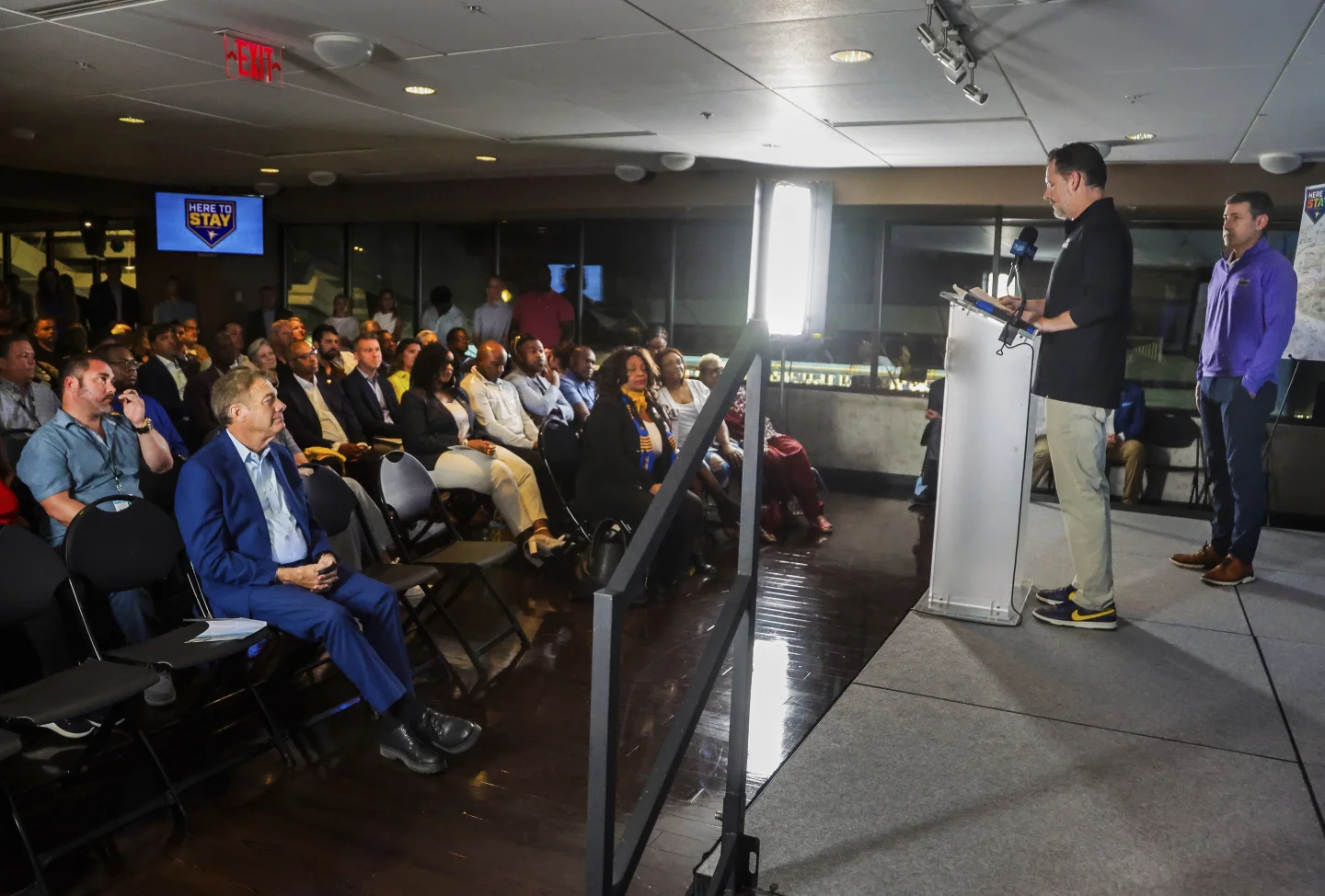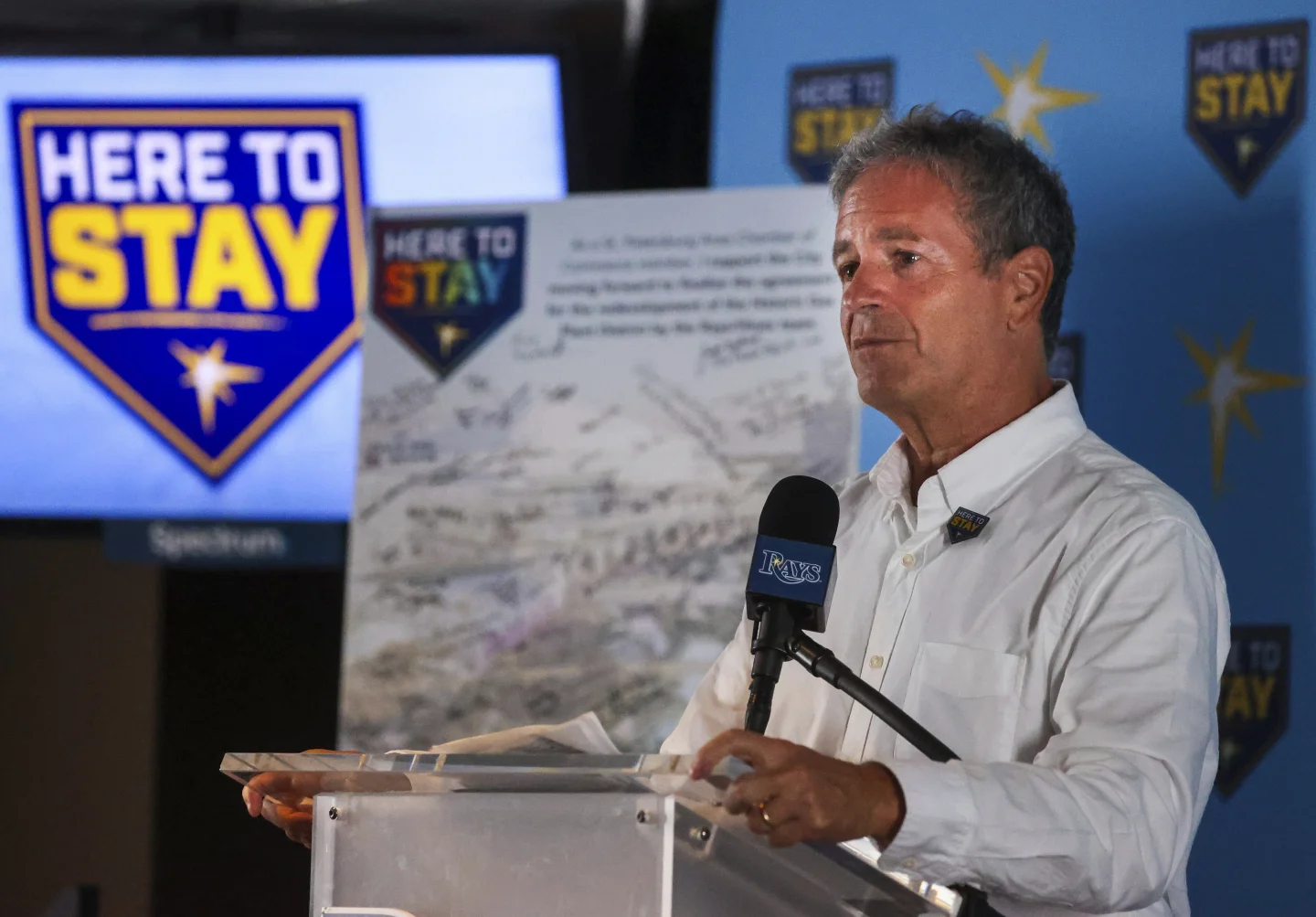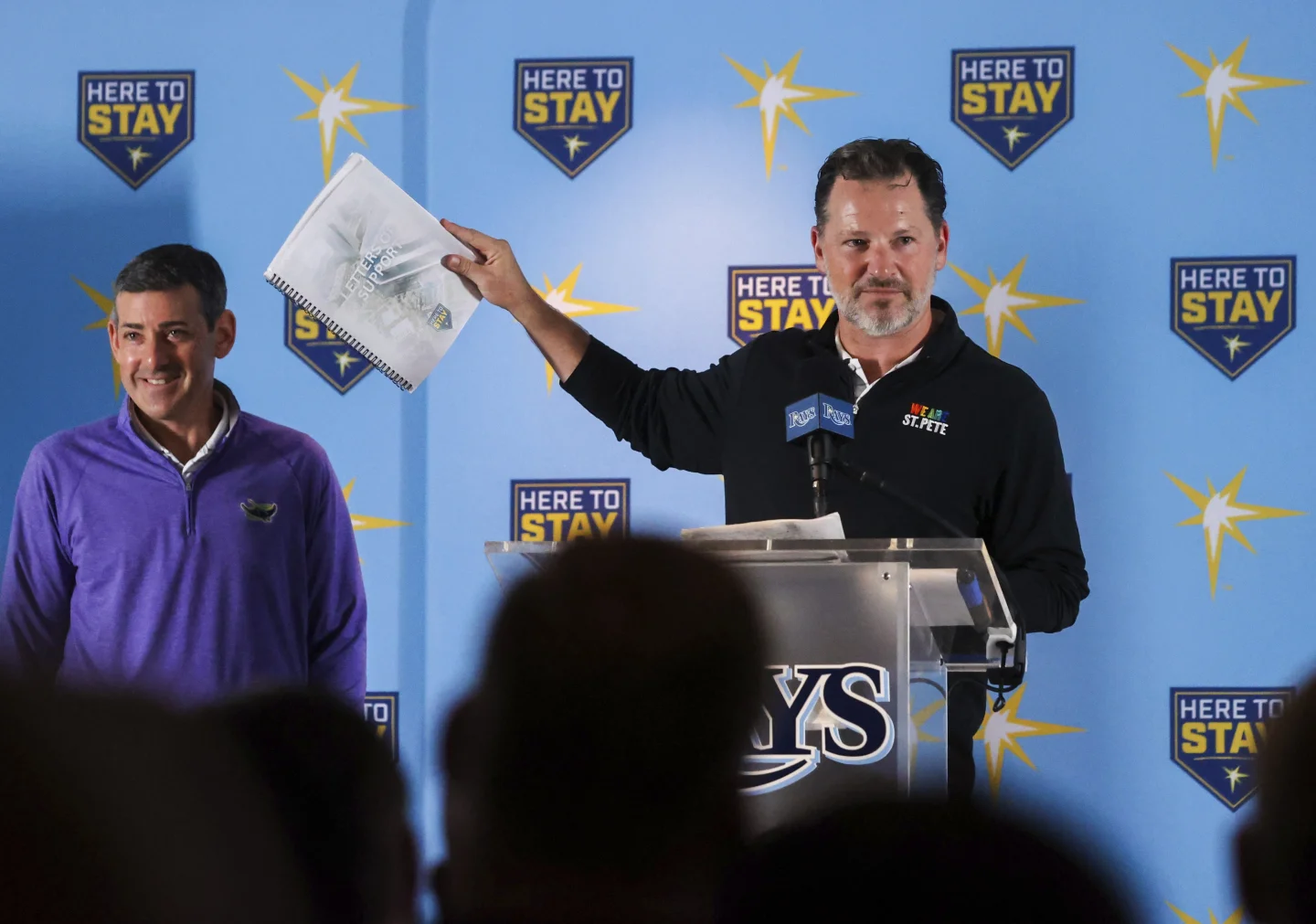On Thursday, a crucial city council vote in St. Petersburg could set the stage for a major redevelopment project that includes building a new ballpark for the Tampa Bay Rays, securing the team’s presence for at least three decades.
Supporters of the $6.5 billion project envision transforming an 86-acre downtown area currently occupied by the Rays’ Tropicana Field and large parking lots. Plans include a Black history museum, affordable housing, a hotel, green spaces, entertainment venues, and commercial and office spaces, promising numerous job opportunities.
The site was once a vibrant Black community displaced by the construction of the ballpark and a highway. St. Petersburg Mayor Ken Welch, whose family has ties to the area, sees the project as a chance to address historical injustices in the Historic Gas Plant District.
“This is unprecedented for our city,” Mayor Welch remarked. “It’s a significant day for our community.” At the heart of the initiative is a proposed $1.3 billion ballpark with a seating capacity of 30,000, expected to be ready for the 2028 season.
This development aims to resolve longstanding uncertainties about the Rays’ future, which included potential relocations to Tampa, Nashville, or a split-season arrangement with Montreal, an idea rejected by Major League Baseball.
Stu Sternberg, the Rays’ principal owner, emphasized that approval of the project, contingent also on a vote by the Pinellas County Commission, would solidify the team’s commitment to staying in St. Petersburg.
“We are committed to this community and eager to secure our future here,” Sternberg affirmed on Wednesday.

The Tampa Bay Rays typically have some of the lowest attendance in Major League Baseball, despite making the playoffs for the past five years. As of this week’s All-Star break, the Rays have a record of 48-48, placing them fourth in the American League East division.
The financing plan involves the city spending approximately $417.5 million, which includes $287.5 million for the ballpark itself and $130 million for infrastructure like sewage, traffic signals, and roads as part of a broader redevelopment project. The city expects to cover these costs without imposing new or increased taxes.
Pinellas County is also slated to contribute about $312.5 million towards the ballpark expenses. Officials indicate that this funding will come from a bed tax primarily paid by visitors and earmarked for tourist-related and economic development projects. The county commission plans to vote on this proposal on July 30.
The remaining funding for the project will mainly come from the Rays and the Hines development company based in Houston.
The ballpark initiative is part of a trend involving numerous construction or renovation projects at sports venues across the nation, including those for the Milwaukee Brewers, Buffalo Bills, Tennessee Titans, and the planned relocation of the Oakland Athletics to Las Vegas. Similar to the Rays’ proposal, these projects often receive substantial public funding, which frequently sparks opposition.
While most of the city’s business and political leaders support the deal, there are critics. Council member Richie Floyd expressed concerns about allocating such a significant amount of money towards the ballpark instead of addressing various community needs.

“It remains one of the largest stadium subsidies in MLB history, and that’s my primary concern,” Floyd stated.
A citizen group named “No Home Run” and other organizations are against the agreement, with the conservative/libertarian Americans for Prosperity arguing that publicly financed sports stadiums haven’t shown positive results.
“The economic benefits promised by advocates of publicly funded sports stadiums often don’t materialize,” stated Skylar Zander, the group’s state director. “Studies consistently show that these projects have questionable returns on investment, benefiting private interests more than the public.”
Despite opposition, the project appears to be moving forward. For former residents and descendants of the Gas Plant District neighborhood, the redevelopment is eagerly anticipated.
“All across the country, our history gets erased. We won’t let that happen here,” remarked Gwendolyn Reese, president of the African American Heritage Association of St. Petersburg. “Our voices will be heard and respected.”
